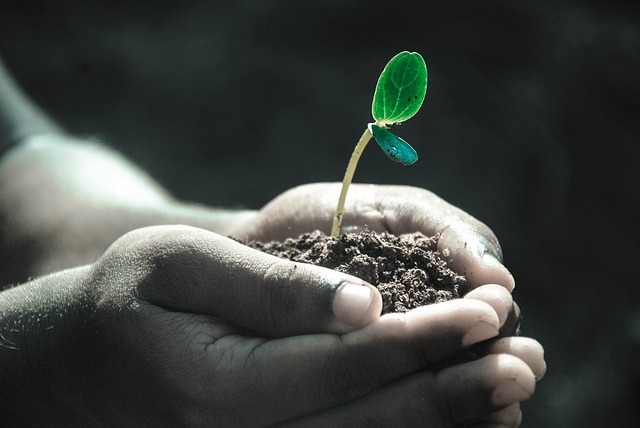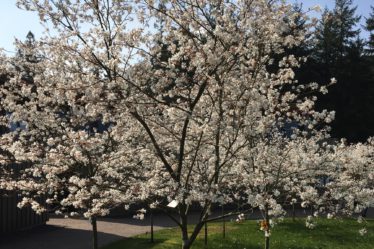
What Is The Best Soil For Plants?
I am often asked – what is the best soil for plants? Of course the answer will depend on which plants are to be grown.
Whether you’re needing soil for the garden borders, containers, types of specialised soils required for particular plants, are all considerations that need to be addressed.
The best soil for plants generally and the most value for money are multipurpose composts.
There are also specialist composts for particular plants that need different mixes of nutrients and PH levels.
With all the environmental issues our beautiful planet is facing we need to make sure that the compost we choose is peat free.
There are any number of multipurpose composts with general PH levels and nutrient levels that are a good mix for many plant requirements now available that do not have any peat content. Here in this article I aim to give you the basics of soil requirements for a few different plant types. Mainly the multi-purpose, peat free composts will be more than adequate for all your general gardening needs.
I earn commission when you shop through the links in this article.
Why Peat Free?
Peat is a natural product, it is made up of composted plants and moss in acidic and waterlogged bogs. It has been sourced and used for 100’s of years as a fuel.
It forms at such slow rates, 1 metre per thousand years that it is not a sustainable product. We are using it a lot faster than it forms, therefore it is not a renewable resource.
Peat bogs absorb and store carbon. Also, they sustain wildlife, plants and insects that have evolved to survive in the peat bog environment. They are essentially an important eco system.
It has been widely used in gardens as a soil improver as it is rich in nutrients.
But when peat is extracted in huge, commercial quantities we alter the eco system drastically. A peat bog is drained when extracting the peat. It dries out and will then die.
Habitat and food for the wildlife, insects and plants that rely on it is lost, resulting in further loss of the wildlife.
A dead peat bog will also start to release the stored carbon within it into the atmosphere with catastrophic effects on the environment.
The concern with gardeners in the past is that peat free compost products are not as good as those with peat, but now compost products carry the British Standards mark so you should be able to rest assured that you can source good quality peat free products.
The Best Composts for Plants
My Top Composts
New Horizon All Plant Compost Best Plants for Hanging Baskets
- 100% Peat Free Compost
- Feeds plants for six weeks. Use a general fertiliser after the six weeks.
- Perfect for seedlings, vegetables, containers and hanging baskets.
- Do not use for acid loving plants.

All plants require good, healthy growing soil. Unfortunately not every garden has the perfect soil for the plants that you may wish to grow. Therefore, buying compost that are an ideal mix of nutrients and organic material is the best way of ensuring your plants are given the proper conditions in which to thrive.
New Horizon Vegetable Compost
- Best compost for vegetable gardens
- Specially blended for all types of vegetables
- 100% Peat Free Compost
- Great for topping up raised beds
- Feeds plants for six weeks. Use a general fertiliser after the six weeks
Generally vegetables will grow in soils that are free draining and rich in nutrients. A crumbly loam soil that has the right balance of the three main requirements for strong healthy growth – Nitrogen, Phosphorus and Potassium.
Digging in organic matter will improve poor soils and give your vegetables the best possible start. Compost, well rotted manure, homemade composts and leaf mulch are all good organic matter that you can use. Not only does organic material add essential nutrients but it also helps to improve the soil texture, making it easier to dig and work with.
Clay soil particularly needs plenty of organic matter added. Planting vegetables in raised beds can help ensure the plants have the best growing medium in which to put down strong and healthy roots which will then be able to grow into the clay soil below. Plants that Grow Well in Clay Soil
Miracle Gro All Purpose Peat Free Compost
- This enriched compost is ideal for beds, borders, containers, hanging baskets, fruit and vegetables
- It is also good for seedlings and cuttings
- 100% Peat Free Compost
- Up to Six month slow release feed
- Ensures strong roots and healthy plants
Specialist Plant Compost
Orchid Focus Potting Compost
- Peat Free
- Perfectly formulated for orchids
- A blend of graded bark and coconut fibre chips
- Ideal for most popular orchid species and hybrids
Growth Technology Ltd MDOF10 Orchid Focus Repotting Mix 10 Litre
Further information on growing Orchids
Cacti and Succulent Compost
With Charcoal How to Grow Succulent Plants
- 100% Organic and renewable
- Cocopeat and Coco husk chips
- Rice Hulls (perlite substitute)
- Horticultural grit
- Slow Release Fertiliser (separate)
Succulent plants are becoming more and more popular as they are easy to grow and need very little care and attention. There is a great variety of succulent plants to choose from to add some interest to your planting areas outdoors or as beautifully striking and decorative house plants.
For a range of lovely succulent starter plants click here
Slow Release Fertiliser
Miracle Gro Slow Release Fertiliser
- Ideal for all types of plants.
- Feeds plants for up to six months
- Perfect for beds, borders, hanging baskets and containers
Ericaceous Fertiliser
- Miracle Gro Camellia and Rhododendron plant food
- For ericaceous, acid-loving Plants
- Feeds plants for up to six months
- Perfect for beds, borders, baskets and container grown plants
Westland Rose Food How do you Grow Roses? Secrets to Success
- Enriched with horse manure
- Improves and conditions soil
- Larger blooms
- Helps to prevent disease
- Feed roses once in April then again in July
Miracle Gro Orchid Food
- Special formula with essential nutrients for beautiful flowers and healthy plants
- Easy to apply, instructions supplies
- Diluted with water in a watering can
- Use from February to June
Baby Bio Drip Feeders
- Convenient and easy to use orchid drip feeders
- Healthy, strong plants
- One drip feeder lasts for a month
Homemade Compost
You need a good mix of wet and dry material –
Any cut back material from finished plants, shrubs, flowers, etc. Foliage, grass clipping, hedge clippings, kitchen waste from uncooked fruit and vegetables.
Wood ash, paper, cardboard, chipped twigs and small branches and autumn leaves.
The hotter you can get the compost the quicker the material will rot down. The heat is generated in the middle of the mix, so turning compost over helps to distribute the heat, aiding further break-down.
Do not add any diseased material as this will further spread the disease or virus.
I also avoid adding perennial weed roots.
How to Make Compost for the Garden
Click on the link below for Monty Don’s video on making compost.
Making Compost
Buy Compost Online
These days I find it easier to buy compost online simply because it is quicker and more convenient for me to do so. The best prices are usually found online too.
It is delivered to me and if I need compost for a clients garden then I can have it delivered directly to their property.
I hope that this article has been useful and interesting to my fellow gardeners, particularly you gardeners who are just starting to learn about your outdoor space and what soil you have. This article will serve to give you some understanding of which composts are best for your plants.
Please share with family and friends and social media.
Happy Gardening












From what I understand here, it appears animals and the entire ecosystem itself depends on peat, which looks to be a scarce resource. For gardeners looking for soil, I think one common denominator here is to continually conserve the ecosystem, so for that peat-free is by far the way to go.
Hi Todd,
thank you for reading and commenting.
Yes the eco-system does depend on our preservation of many natural sites and resources.
Peat has been used for years by gardeners and as a source of fuel. We are using it far quicker than it is able to develop so therefore it is an unsustainable product.
Best Wishes
Louise
Hi there, Louise.
I’m so glad I run into website online as your info offered me the answer to my question. I always wondered about composts that don’t contain Peet and whether they were as good as the products that did.
Going on what you said which makes a lot of sense to me by the way, I’m completely confident the composts I am buying for my beloved plants is doing the job.
I think it’s about time we stop degrading the natural environment and found the topic very interesting to read.
Thanks, Jeff.
Hello Jeff, pleased to make your acquaintance,
For a long time most gardeners have resisted using peat-free composts because of the lack of quality ones available, now, however they are much improved. You can rest assured that your plants are getting the nutrients they need.
Best Wishes
Louise
I read all the descriptions about the best soil for plants, Interesting review! I agree with you buying compost online is easier than homemade compost. I like to try the New Horizon Vegetable Compost because I like to plant my own mint and basil. Also, I have a question, Can I use the New Horizon Vegetable Compost for lemon trees.
Hello Sam, thank you for your comments.
homemade compost is good to make and at least you know exactly what has gone into it. But for myself I can’t make enough for my gardens needs, hence, I do buy some too.
Lemon trees and other citrus fruits require slightly acidic soil so you need to use an ericaceous compost.
Most multi purpose compost have to much lime in them that citrus trees don’t want.
Hope this helps
Louise